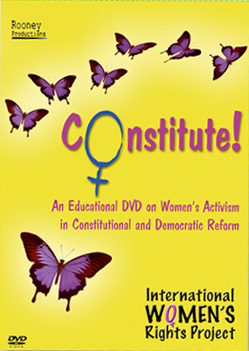Marilou McPhedran, Jennifer Bond and Laurel Sherret researched how to most effectively engender the emerging United Nations “Responsibility to Protect Doctrine” (R2P) by producing:
- A background strategy paper for the UN reform summit for Ambassador Allan Rock and senior staff at the Permanent Mission of Canada to the United Nations
- A full academic paper, Sight for Sore Eyes: Gender Blindness in R2P, published by INSTRAW
- With guidance from Ambassador Rock, a version of the R2P strategy paper focused toward Canadian opinion makers presented at the CFGS invitational roundtable Failed States
IWRP is proud to have been part of the peer review process for a report published jointly by United Nations Environment Program (UNEP), UN Women, the UN Development Program, and the UN Peacebuilding Support Office titled, Women & Natural Resources: Unlocking the Peacebuilding Potential. This report highlights the importance of ensuring that women have better access to and control of natural resources such as land, water, forests and minerals because of the connection that this has to improving the chances of long-term peace and recovery in war-torn countries.
Gender equality, natural resource management and peace are intrinsically linked. Due to socially prescribed gender roles, women are especially dependent on natural resources for their livelihoods as they are typically the primary providers of water, food and energy for their families. However, although women represent the majority of resource users, this responsibility seldom translates to the political or economic levels and women are rarely consulted in peacebuilding programs related to agricultural planning, technology, and access to credit. Therefore, this report argues that women are an untapped wealth of natural resource knowledge and peacebuilding potential and failing to seize the opportunity presented by women’s roles in natural resource management can perpetuate inequity and undermine recovery from conflict.
To find out more and to view the full 74-page Report click here:
